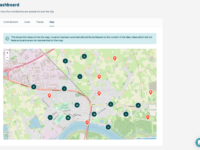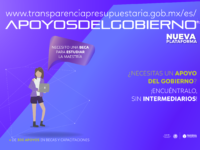The frameworks for creating and managing the rule of government, as reflected in policies, legislation and regulation, are still based on a paper paradigm. In a digital world this creates poor service experiences and often the intent of a policy is not achieved. Instead if we co-design authoritative machine-consumable rules we can provide better services for citizens, better delivery of policy intent, and enable communities, NGOs and private sector to be part of a government service ecosystem.
Case Studies
Innovations:
0
This website, as well as any data and map included herein, are without prejudice to the status of or sovereignty over any territory, to the delimitation of international frontiers and boundaries and to the name of any territory, city or area.
The Administration of Rome had to decide how to use about 17 million euros for public works in the territory of the VIII District for projects concerning the environment, landscape and public green spaces, sustainable mobility and accessibility, urban regeneration and infrastructure, ideas or proposals for transversal projects. The innovation concerns the decision-making approach. For the first time, city users were involved in deciding how to allocate these resources.
Case Study
Unlocking the potential of crowdsourcing for public decision-making with artificial intelligence

In citizen participation projects, analysing contributions is often a huge challenge for administrations.
CitizenLab has developed machine-learning algorithms in order to help civil servants easily process thousands of citizen contributions and efficiently use these insights in decision-making.
The dashboards on our platform classify ideas, show what topics are emerging, summarise trends and cluster similar contributions by theme, demographic trait or location.
Launched in June 2018, Openstat Madagascar is an open data platform to highlight the "how" Government should release their data. Developed in a country where there is no Access to Information law, data available on the platform are all under Creative Commons and used as tools for Open Data advocacy program. Other national entities which want to make their data available to the public are welcome for partnership.
Les Halles Civiques is a third-place network that gathers organisations working on citizen empowerment, public innovation, and democratic progress. Its members are researchers, designers, social innovators, entrepreneurs, etc. It aims to contribute to a richer and more inventive democratic life at the local, national and international level, and strengthen democratic innovation. It is also a physical space where citizens, professionals and representatives can work, meet and discuss.
The European Citizens’ Consultations (ECCs) were a project aiming to engage citizens in a consultation about what Europe meant to them. It was formed of two strands; an online survey about the future of Europe, and a series of national consultation events organised by national governments and other organisations like NGOs, think tanks, and academic institutions. This was a new experiment to give European citizens the possibility to express and exchange their opinions about the Union and its…
A new waste management system, driven by information. Bogota has evolved its cleaning and recycling scheme, generating a profound transformation in the way in which citizens needs are met and garbage collection is managed. This model is based on the effective use of data and information. This initiative has allowed greater transparency in the actions of involved public and private organizations, an intense collaboration to provide the best service and enabling citizens active participation.
The information on the different procedures of access to benefits is scattered among many different agencies websites, whereas the platform "Apoyos del Gobierno" aims to simplify through Artificial Intelligence that any interested party can consult the details of Federal Government programs in a single place.
Based on neurolinguistics analysis, the platform not only provides predicted results considering relevant contextual words, but also enhances searches considering the user’s profile.
The NODC is a data catalog fully compliant with DCAT-AP, the European standard for dataset metadata. It is open source, developed on GitHub, and consists of other open source projects. It can be reused on various levels of government and addresses an important issue with currently available data catalog implementations not in compliace with today’s metadata standards.
The Artech project invites artists, entrepreneurs, and developers to use public data as a "raw material" for works of art based on traditional arts or digital media. Being a well-known and respectable medium to broad audiences, we see art, as an original and fresh way to expose new audiences to the importance of open data and its relevance. This is the first time that a government agency in Israel has directly sponsored a creative and innovative experience of this kind.



